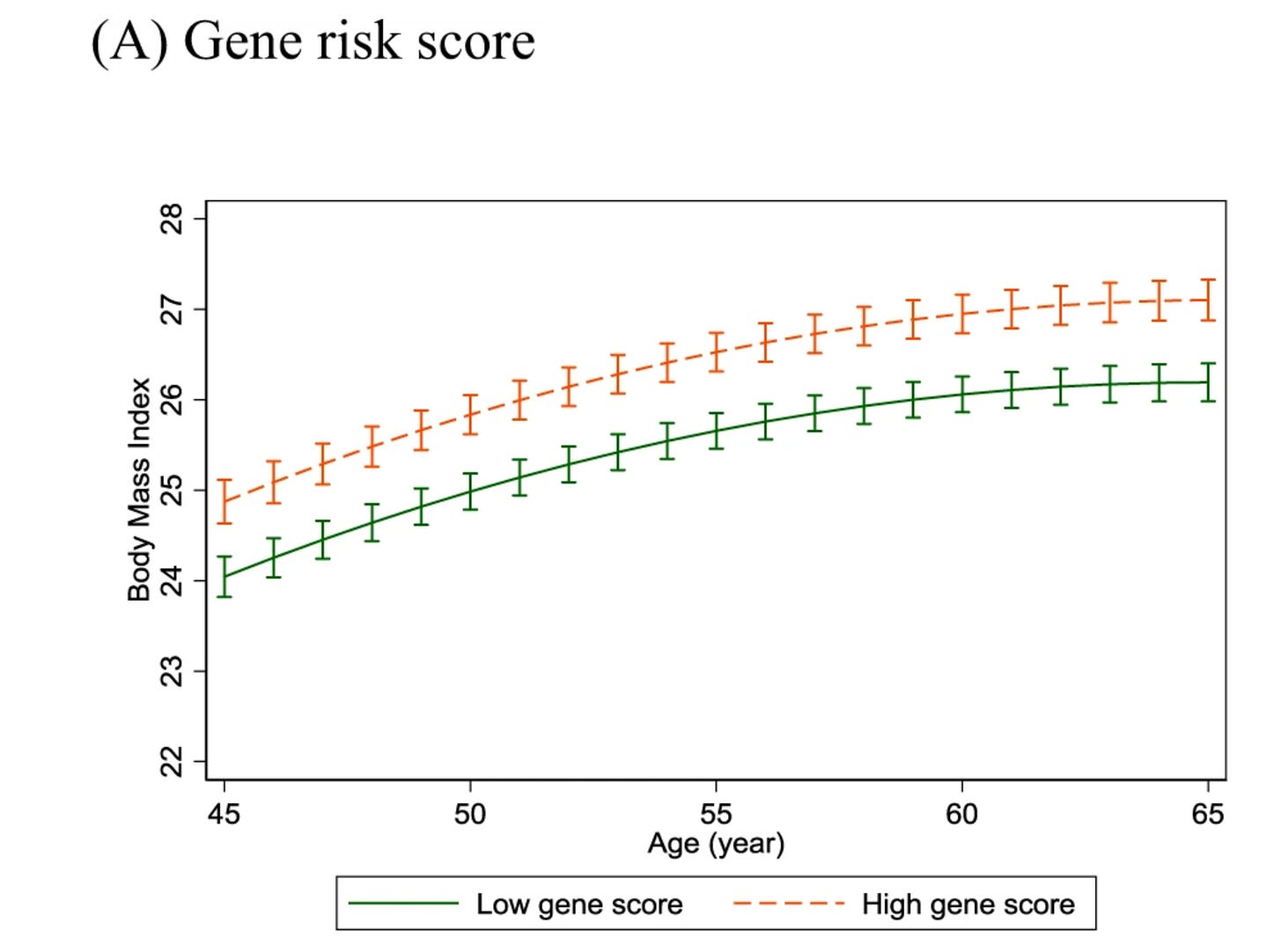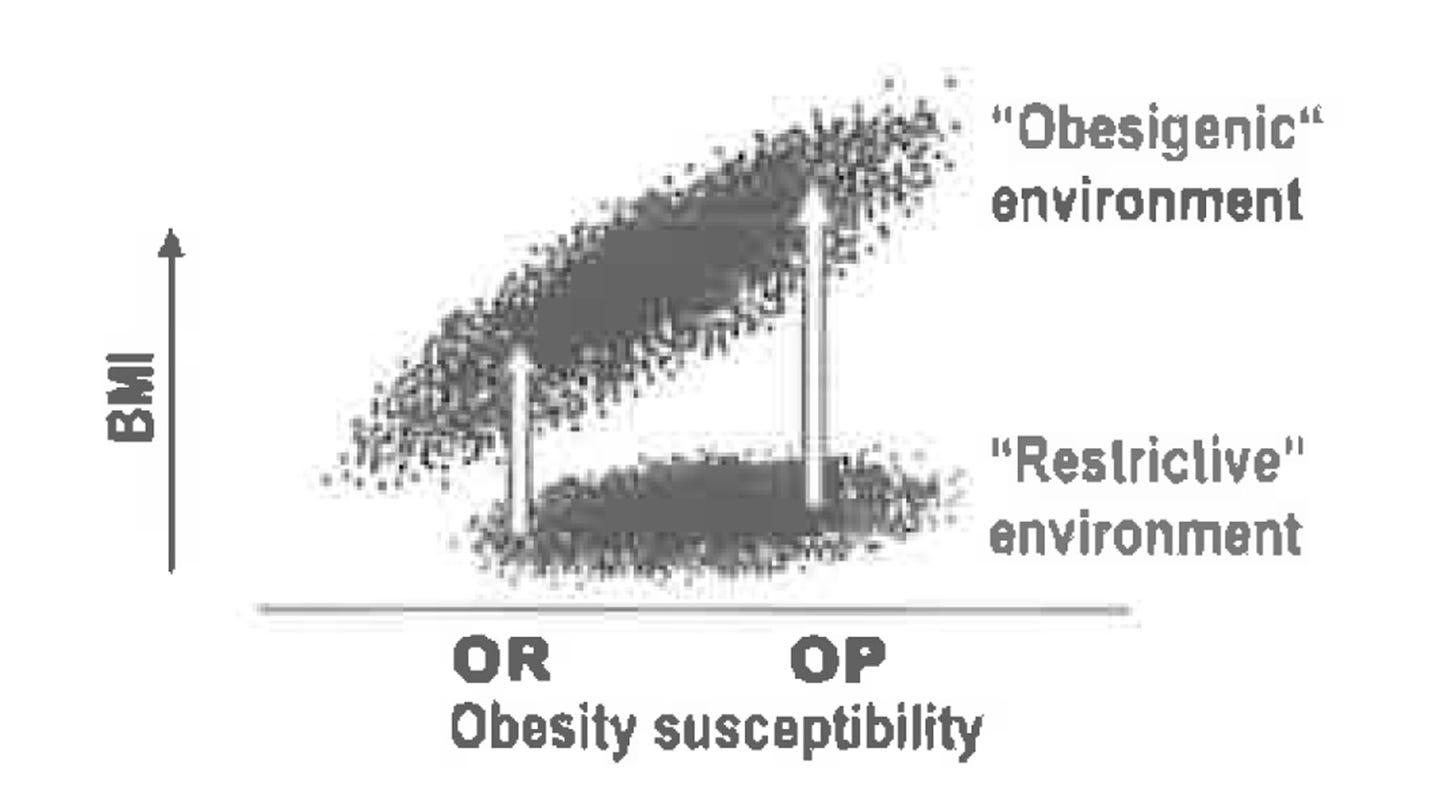Why The Modern World Is Making You Overweight

In 1989 Boris Yeltsin, the former Russian President, was visiting the Johnson Space Centre in Houston, Texas, when he made an unscheduled stop at a local grocery store1.
He was mesmerised by the range of foods on offer.
He stated that if the people of Russia knew that this was available in the West, there would be a revolution.
He was so surprised by what was on offer that he thought the store was fake.
But it wasn’t.
It was just another convenience store in a developed nation.
Approximately two in every three people are overweight or obese. On the Pacific Island of Palau, that figure is over 8 in 102.
Worldwide, the prevalence of obesity has more than doubled since the 1980s3.
The question is, why?
Saying that people are ‘eating too much’ is a lazy answer.
It is also incredibly uninteresting.
It’s the same as saying Elon Musk is richer than you because he earns more money than you. We are none the wiser with that information.
Again, the question is, why are we eating more?
Since the 1980s, humans have not changed a whole lot.
But the environment we spend our time in?
Oh, that has changed a lot.
Everyone has a different genetic tendency to become overweight4.

However, just because you have a high genetic risk doesn't mean you WILL be overweight.
Genetics tells us ‘What could be’, not ‘What is’.
The outcome, obesity in this instance, is usually the combination of the interplay between genetic risk factors and environmental exposure.
Individuals with a high genetic risk for obesity and who were born before 1932 are at an increased risk of being overweight5. As you would expect because of their genetic tendency.
But as they were born so long ago, they have been exposed to our modern, obesogenic environment for a much shorter period.
If you compare those individuals to a group with the same high genetic risk of obesity but were born after 1960, you find that they are, on average, more overweight6.
Being born after 1960 means they would have spent more time exposed to a more modern environment, which is likely to explain at least some of the reasons why they are more overweight.
So yes, genetics does influence your risk of obesity, but those same genetics in a modern environment are even more influential.
The specific drivers of obesity in the modern environment are fiercely debated:
-
More processed food
-
Less physical activity
-
Screen time
-
Increasing work commitments
-
Air pollution
The list of potential influences is long.
This means we have two variables to consider:
-
Genetic Risk for overweight/obesity
-
Environment - Obesity Promoting or Restricting
A reasonable hypothesis supported by the research on those born before the 1930s would be that even an obesity-prone individual if put in a restrictive environment, would be much less likely to become overweight7.
But today, almost all of us live in an obesity-prone environment. This isn’t destiny, but it sure does tilt the odds.

But let me propose one additional factor of our modern environment that may predispose us to become overweight:
Worsening emotional health.
This isn’t a claim to suggest that rates of mental illness are driving obesity. It is more an observation that, more than ever, people are feeling a pervasive sense of stress and unease.
We know that our cue to eat, hunger, is often not driven by our need for caloric intake but by other factors such as stress, boredom, anxiety, etc8.
How often have you been stressed or bored and had something to eat to reduce that feeling?
This is called reward eating.
Different individuals have different tendencies toward this behaviour, which can be measured using questionnaires.
If you look at those with high disinhibition, i.e. more likely to engage in reward eating, it reveals this to be a major factor in higher rates of being overweight9.

What this graph illustrates is that a significant proportion of the genetic risk for being overweight is driven by our tendency toward emotional reward eating.
And in an increasingly distressed society, this is not a good combination.
In the US alone, 27% of people feel so stressed on a daily basis that they feel unable to function10.
The causes of obesity are incredibly complex, and there is still so much for us to learn.
But there are two things we can say with confidence:
-
Our modern environment is a major promoter of obesity.
-
Worsening emotional health is likely to be a major factor in the rising rates of obesity.
To address both of these issues, our environment needs to change.
Until then, it’s going to be a very long and hard battle against obesity.
And until our environment changes we must use all tools available to us to fight this battle.
https://www.chron.com/neighborhood/bayarea/news/article/When-Boris-Yeltsin-went-grocery-shopping-in-Clear-5759129.php
https://ourworldindata.org/obesity
https://www.hsph.harvard.edu/news/press-releases/worldwide-obesity/
The genetics of obesity: from discovery to biology. Nat Rev Genet 23, 120–133 (2022).
Genetic Effect on Body Mass Index and Cardiovascular Disease Across Generations. Circ Genom Precis Med. 2023 Jan 4:e003858.
Genetic Effect on Body Mass Index and Cardiovascular Disease Across Generations. Circ Genom Precis Med. 2023 Jan 4:e003858.
The genetics of obesity in transition. Coll Antropol. 2012 Dec;36(4):1161-8. PMID: 23390806; PMCID: PMC4356255.
Integration of reward signalling and appetite regulating peptide systems in the control of food-cue responses. Br J Pharmacol. 2015 Nov;172(22):5225-38.
Appetite disinhibition rather than hunger explains genetic effects on adult BMI trajectory. Int J Obes 45, 758–765 (2021).
https://www.apa.org/news/press/releases/stress/2022/concerned-future-inflation




